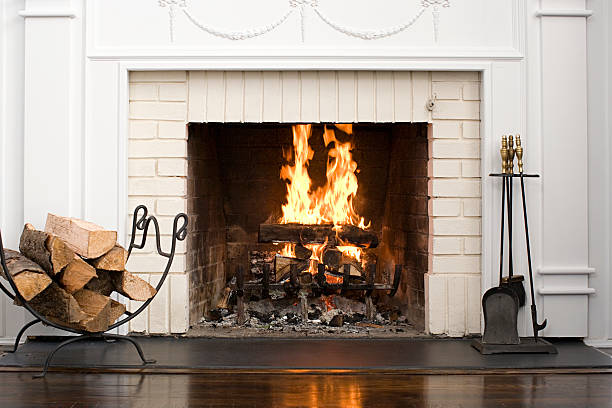
Heating our homes efficiently is crucial, especially during the cold winter months. One excellent heating option is using firewood, which provides warmth and a cozy ambiance. But not all firewood is made equal, and picking the appropriate kind can have a big influence on how efficiently you heat your home. This article will go through the numerous factors to take into account when choosing firewood in order to optimize its heating ability and create a cozy environment in your house.
Understanding Firewood and Its Importance
The main fuel for outdoor fire pits, fireplaces, and wood-burning stoves is firewood. It consists of logs or pieces of wood that, when burned, release heat energy. The kind and caliber of the firewood directly affect how much heat is generated, how long it burns, and how effective the heating system is as a whole.
Types of Firewood
The following are different types of firewood which can help you make an informed decision for your heating needs
Hardwood vs. Softwood
Fire logs are typically classified into two main categories: hardwood and softwood. Hardwood, sourced from deciduous trees such as oak, maple, and birch, possesses higher density and boasts a longer burning duration, ensuring a sustained release of heat. On the other hand, compared to hardwood fire logs, softwood, which is derived from evergreen trees like pine and spruce, burns faster and ignites more easily.
Popular Hardwood Options
Some popular hardwood options include oak, maple, ash, and beech. These types of firewood are known for their excellent heat output, extended burn times, and overall durability. They are often preferred for their high heating efficiency.
Popular Softwood Options
Softwoods such as pine, spruce, and fir are commonly used as firewood. They ignite quickly and are ideal for kindling and starting fires. While they don’t provide the same level of heat as hardwoods, they can still be suitable options when combined with hardwoods for optimal heating.
Factors to Consider When Choosing Firewood
Below mentioned are the factors that one needs to consider while choosing firewood.
Heating Efficiency
To ensure efficient heating, it’s important to select firewood that produces a high amount of heat and maintains a steady burn. Hardwoods are generally more efficient than softwoods due to their higher energy content.
Moisture Content
The moisture content of firewood significantly impacts its burn quality. Green or unseasoned firewood contains excess moisture, which leads to inefficient combustion, increased smoke, and creosote buildup. It’s best to use seasoned firewood with a moisture content of around 20% or lower.
Density
The density of firewood affects both its burn time and heat output. Denser hardwoods have a higher energy content and burn longer, providing sustained warmth. Softwoods, while less dense, can still be used in combination with hardwoods to optimize burn duration.
Seasoned vs. Unseasoned Firewood
Seasoned firewood refers to wood that has been properly dried, allowing it to burn efficiently and produce more heat. Unseasoned or green firewood has a higher moisture content and requires additional time to dry before use. It’s crucial to use well-seasoned firewood for optimal heating.
Local Availability and Sustainability
Consider the availability of firewood in your local area. Choosing locally sourced firewood reduces transportation costs and supports sustainable forestry practices. It’s essential to select firewood from renewable sources and avoid contributing to deforestation.
Recommended Firewood for Different Heating Systems
Here are some recommendations of different heating systems that can help to enhance the efficiency of your firewood.
Wood Stoves
Wood stoves benefit from dense hardwoods like oak, maple, and ash. These hardwoods provide long-lasting burn times and high heat output, making them ideal for efficient heating in wood stoves.
Fireplaces
Fireplaces can utilize a combination of hardwoods and softwoods. Hardwoods offer sustained heat, while softwoods like pine can help ignite the fire quickly. Avoid resinous softwoods as they can lead to excessive creosote buildup in the chimney.
Outdoor Fire Pits
Outdoor fire pits allow for more versatility in firewood selection. Hardwoods are still recommended for longer burn times, but softwoods can be used to create a vibrant and crackling fire. Always follow local regulations and fire safety guidelines when using outdoor fire pits.
Conclusion
Choosing the right firewood is essential for efficient heating and creating a warm and inviting atmosphere in your home. Consider the type of firewood, heating efficiency, moisture content, density, and local availability when making your selection. Properly storing and seasoning firewood will ensure optimal burning and reduce the risk of creosote buildup. You may profit from a warm house during the winter by adhering to these recommendations and best practices.

